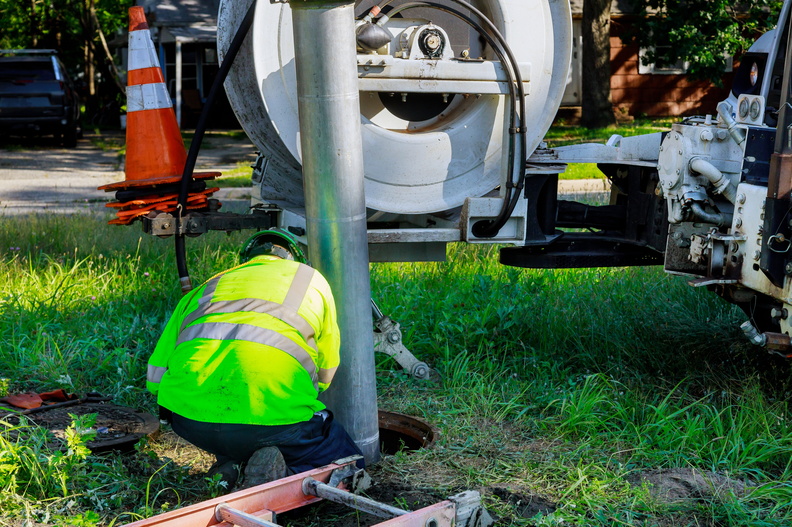Septic Tank Pumping: Ensuring a Healthy Home and Environment

Hidden beneath the ground, septic systems are an integral part of many homes, especially in rural areas where municipal sewage systems are unavailable. While they may be out of sight, they should never be out of mind. Regular septic tank pumping is a crucial maintenance task that ensures the efficient and safe operation of your septic system.
What is Septic Tank Pumping?
Septic tank pumping is the process of removing accumulated solids and sludge from a septic tank. It is a vital part of septic system maintenance and ensures that the tank operates efficiently and effectively. Septic tanks are typically made of concrete, fiberglass, or plastic and are buried underground, receiving wastewater from your home's plumbing system. These tanks are designed to separate solids from liquids, allowing the solids to settle at the bottom and the effluent (liquid waste) to flow out into a drain field for further treatment.
Over time, solid waste materials and sludge accumulate in the septic tank. These materials can reduce the tank's capacity, interfere with its proper functioning, and even lead to system failures if left untreated. Septic tank pumping involves hiring a professional to remove these accumulated solids, which helps prevent system clogs, backups, and environmental contamination.
The Importance of Septic Tank Pumping
Prevents System Failures: One of the most crucial reasons for regular septic tank pumping is to prevent system failures. When solids and sludge build up in the tank, they can block the flow of effluent, leading to backups in your plumbing system and potential damage to your home. A failed septic system can be a costly and unpleasant ordeal to resolve.
Protects the Environment: Neglecting septic tank pumping can have serious environmental consequences. When a septic system fails, untreated sewage can leak into the soil and contaminate groundwater, nearby streams, rivers, or even surface water bodies. This contamination poses a significant risk to human health and aquatic ecosystems.
Preserve Property Value: A well-maintained septic system is an essential part of your property's value. Potential buyers are often wary of properties with neglected septic systems, as they may anticipate costly repairs or replacements. Regular pumping and maintenance can help you preserve your property's value.
Extends the System's Lifespan: Regular maintenance, including septic tank pumping, can significantly extend the lifespan of your septic system. Proper care and attention can prevent premature system failures, saving you money in the long run.
The Dangers of Neglecting Septic Tank Pumping
Sewage Backups: One of the most immediate dangers of neglecting septic tank pumping is the potential for sewage backups into your home. When the tank is full, wastewater has nowhere to go but back into your plumbing system. This can result in toilets, sinks, and drains overflowing with sewage, leading to unsanitary and costly cleanup.
Soil and Water Contamination: Perhaps the most serious consequence of failing to pump your septic tank is environmental contamination. When sewage overflows from the tank, it can seep into the surrounding soil and, eventually, into groundwater or nearby water bodies. This contamination can introduce harmful bacteria, pathogens, and chemicals into the environment, posing health risks to humans and wildlife.
Costly Repairs and Replacements: A neglected septic system is a ticking time bomb. Over time, the accumulation of solids and sludge can damage the tank, drain field, or other system components. Repairing or replacing these components can be extremely costly, far more expensive than routine maintenance.
Foul Odors and Pest Infestations: A full and neglected septic tank can emit foul odors around your property, making it an unpleasant place to live. Additionally, the presence of excess sewage can attract pests like rodents and insects, creating further nuisances and health hazards.
How Often Should You Pump Your Septic Tank?
The frequency of septic tank pumping depends on several factors, including the size of your tank, the number of occupants in your household, and your water usage habits. As a general guideline, most experts recommend pumping your septic tank every 3 to 5 years. However, larger households or those with higher water usage may require more frequent pumping.
It's essential to have a professional assess your specific situation and recommend a pumping schedule tailored to your needs. Regular inspections and maintenance can help determine when it's time to schedule a pump-out.
Septic tank pumping may not be the most glamorous aspect of homeownership, but it is undeniably essential. Neglecting this crucial maintenance task can lead to a host of problems, including sewage backups, environmental contamination, and costly repairs. By understanding the importance of septic tank pumping and the potential dangers of neglecting it, homeowners can take proactive steps to protect their property, the environment, and their family's health. Regular maintenance, including septic tank pumping, is an investment in the long-term functionality and value of your home, as well as a responsible choice for safeguarding the environment.



Comments